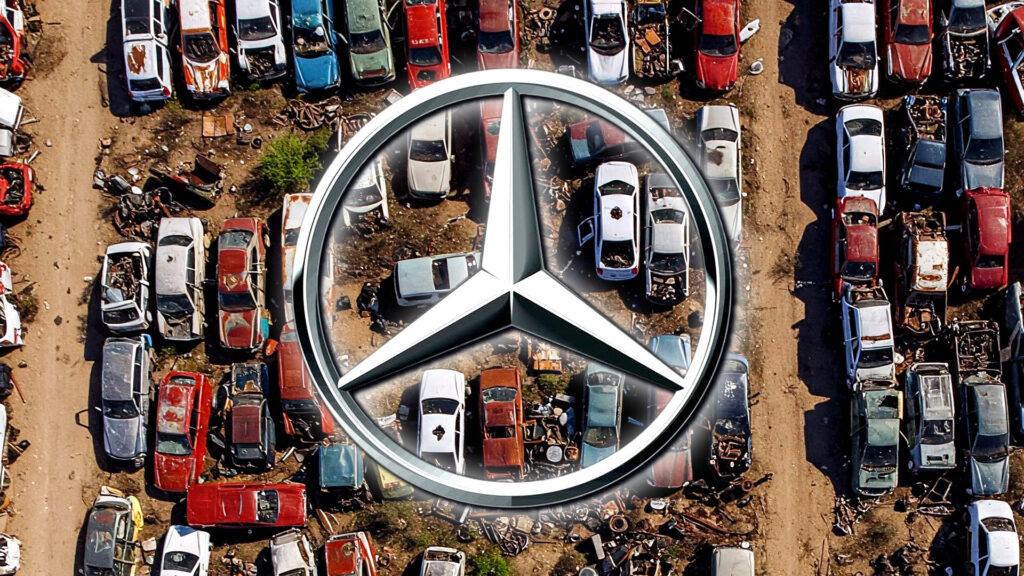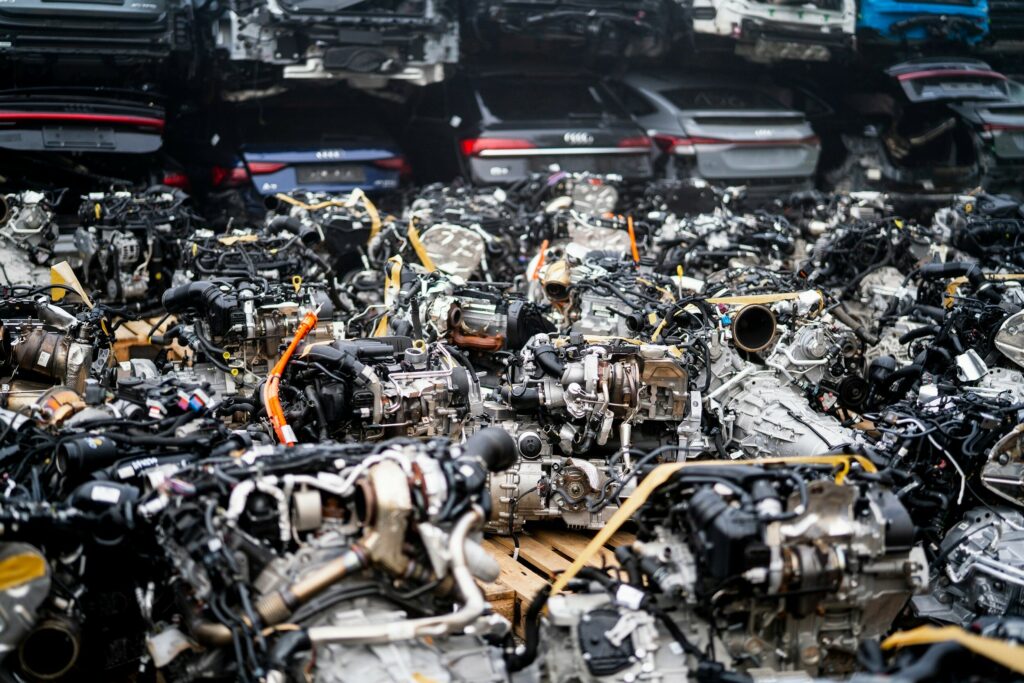Volkswagen received the largest fine of $137.7 million, while Mercedes escaped punishment by ratting everyone out

- The European Commission has fined automakers for running a recycling cartel that prevented competition.
- The effort reportedly went on for more than 15 years and an auto association group acted as a “facilitator.”
- Mercedes turned on their competitors and exposed the scandal, escaping a $37.8 million fine in the process.
April is shaping up to be a bad month for automakers as President Trump’s devastating tariffs are slated to go into effect tomorrow. If that wasn’t bad enough, the European Union has fined 15 automakers and the European Automobiles Manufacturers’ Association €458 ($494.1 / £382.6) million for “participating in a long-lasting cartel concerning end-of-life vehicle recycling.”
According to the European Commission, 16 automakers and the European Automobiles Manufacturers’ Association “entered into anticompetitive agreements and engaged in concerted practices related to the recycling of end-of-life vehicles.” In particular, the group agreed not to pay car dismantlers for processing vehicles as they believed this was already a “sufficiently profitable business.”
More: Mercedes’ New Battery Plant Can Recycle 96% Of Raw Materials
On top of that, the companies and organization reportedly “shared commercially sensitive information on their individual agreements with car dismantlers and coordinated their behavior towards dismantlers.” They also reportedly hid recycling information from the public to prevent consumers from considering this when buying a vehicle.
These efforts appear to run afoul of Directive 2000/53/EC, which calls for the last owner of an end-of-life vehicle to be able to dispose of it at no cost with a dismantler. If needed, automakers are supposed to foot the bill. The directive also says consumers are required to be informed about the recycling performance of new cars.
This coordinated effort reportedly went on for more than 15 years and involved BMW, Ford, Honda, Hyundai / Kia, Jaguar Land Rover, Mazda, Mercedes, Mitsubishi, Opel, Renault / Nissan, Stellantis, Suzuki, Toyota, Volkswagen, and Volvo. Tata, General Motors, and Geely also got thrown into the mix as parent companies.
As for the European Automobiles Manufacturers’ Association, it reportedly acted as a “facilitator of the cartel” as it “organized numerous meetings and contacts between car manufacturers involved in the cartel.”

While Mercedes was an active participant, they ratted out their co-conspirators in exchange for full immunity. The European Commission says this saved them around €35 ($37.8 / £29.2) million in fines.
Speaking of leniency, Honda, Mazda, Mitsubishi, and Suzuki had “lesser involvement” in the scandal, while Renault had “explicitly asked for an exemption from the agreement not to advertise the use of recycled material in new cars.” Stellantis (including Opel), Mitsubishi, and Ford also cooperated with the investigation in exchange for a softer punishment.
Volkswagen was the big loser with a €127.7 ($137.7 / £106.7) million fine. They were followed by Renault / Nissan at €81.5 ($87.9 / £68.1) million and Stellantis at €74.9 ($80.8 / £62.6) million.
The Executive Vice-President of the European Commission for a Clean, Just and Competitive Transition said, “Today, we have taken firm action against companies that colluded to prevent competition on recycling. These car manufacturers coordinated for over 15 years to avoid paying for recycling services, by agreeing to not compete with each other on advertising the extent to which their cars could be recycled, and by agreeing to remain silent on the recycled materials used in their new cars.” Teresa Ribera added, “We will not tolerate cartels of any kind, and that includes those that suppress customer awareness and demand for more environmental-friendly products.”
EU Fines
#Stellantis #Crushed #495M #Scandal #Mercedes #Snitched


